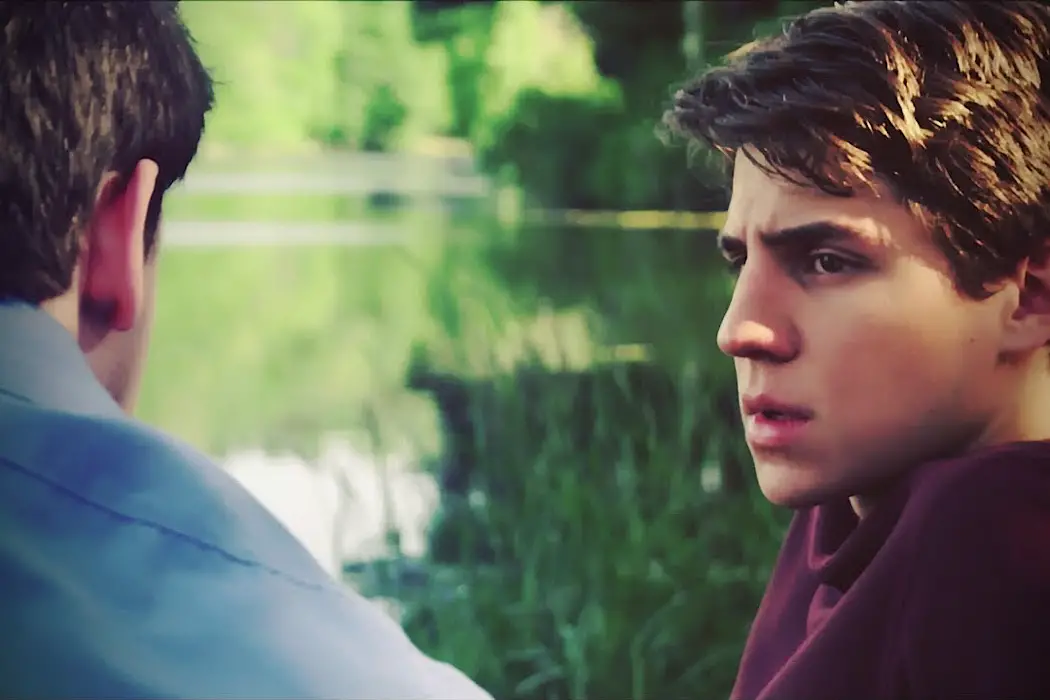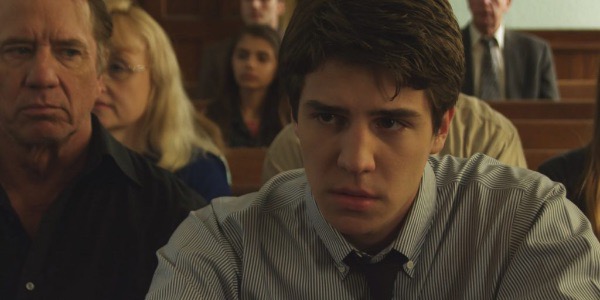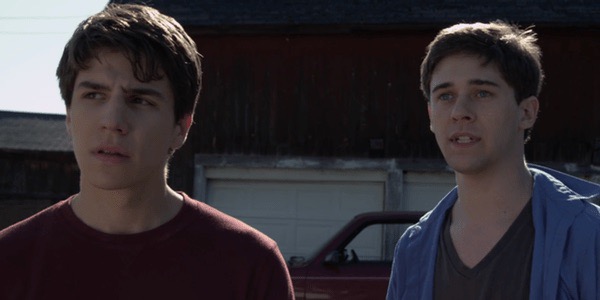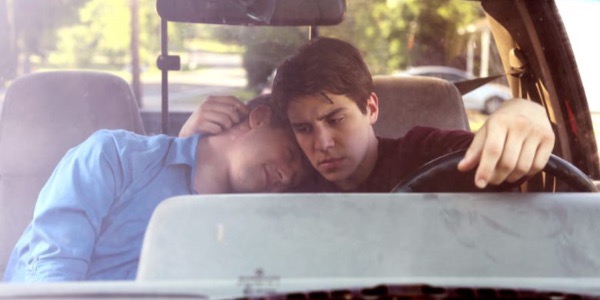Queerly Ever After #53: FAIR HAVEN (2016)

Amanda Jane Stern is an actress, writer, and director from…
Queerly Ever After is a bi-monthly column where I take a look at LGBT+ films that gave their characters a romantic happily-ever-after. There will be spoilers. Also, don’t forget to buy your Queerly Ever After merch right here.
19-year-old James Grant (Michael Grant) returns home to his family’s apple orchard in Fair Haven, Vermont after a stint in a conversion therapy facility. Back living with his emotionally distant father, Richard (Tom Wopat), who sent him to the facility in the first place, he tries to throw himself into religion and put his romantic past behind him. Unfortunately for James, it is not only his sexuality, of which his father is disapproving. James wants to study music in college and eventually become a concert pianist or professor, it must be noted that Grant actually is a concert pianist, and a double was not used for scenes of him playing the piano.

He’s been accepted into the Berkley College of Music in Boston, Massachusetts, though he deferred his acceptance for a year due to his mother’s recent passing and to undergo conversion therapy. Now, he’s looking forward to starting at Berkley in the fall, only trouble is, Richard spent the money that James had saved for college on medical expenses and conversion therapy. Richard would much rather James go to college closer to home and study agriculture or business to eventually take over the orchard.
Relationships New and Old
One day at church James meets the pastor’s daughter, Suzy (Lily Anne Harrison), who is the same age as he, though they were a grade apart in high school. The two strike up a very tentative romance as James tries to force himself to have romantic feelings for Suzy. That becomes more complicated when, doing a drop-off for his dad he runs into his ex-boyfriend, Charlie (Josh Green). James has not seen or spoken to Charlie since he was sent away, and seeing him again stirs up old memories he’d rather leave in the past. At first, James is cold towards Charlie, afraid that even being around him will cause him to revert to his old ways. After Charlie gets beaten up on his way home from work one night, James insists on driving Charlie home until he can get a new car. As the two resume a friendship, all those feeling James had tried so hard to repress come bubbling back to the surface, and the two become romantically involved again.

After sleeping together in the bar attached to Richard’s house, James and Charlie get caught by Suzy, who leaves in a huff. Richard, hearing the commotion, comes outside to see what’s going on, and immediately realizes that James has taken back up with Charlie, whom Richard has never actually met but seen photos of in James’ bedroom. The movie loses a little steam at this point. Now, outed again, James decides he’s going to leave, after all, his father can’t accept him and clearly doesn’t want him there. So, he and Charlie decide to move to Boston together, and James will figure out some way to pay for Berkley.
Selling the Farm
There’s been another plotline running throughout the film. A married couple has taken a large interest in the orchard and wants to buy it off Richard in the hopes of turning it into an organic orchard. James of course thinks his father should sell. He has no desire ever to run the farm, and with the amount of money the couple is offering, not only would he be able to attend Berkley, but Richard would have the money to travel and explore the world for the first time. Eventually, Richard realizes that running the orchard was never his dream either and that selling is the best thing to do. He sells the farm and splits the money with James, and finally accepts his son for who he is.

Here’s the thing about Richard finally accepting his son’s sexuality, I don’t know if it really feels earned. That’s not to say James doesn’t deserve his father’s acceptance, he absolutely does, but from a character and plot standpoint, Richard is a man whose homophobia is so ingrained that he thought the best thing to do was ship his son off to conversion therapy, right after his mother’s death. There’s a fine line between taking time to come around to your child’s sexuality and sending them to conversion therapy, and I don’t necessarily believe he would come around just like that after all the things he’s done in the past.
In Conclusion: Fair Haven
Fair Haven is a well-acted conversion therapy drama. Although it occasionally has pacing problems and loses some steam in the third act, it is ultimately a well-done indie film.
Fair Haven was written by Jack Bryant and Kerstin Karlhuber, and directed by Kerstin Karlhuber. It came out in the USA in March, 2017. For all other release dates, see here.
Watch Fair Haven
Does content like this matter to you?
Become a Member and support film journalism. Unlock access to all of Film Inquiry`s great articles. Join a community of like-minded readers who are passionate about cinema - get access to our private members Network, give back to independent filmmakers, and more.
Amanda Jane Stern is an actress, writer, and director from New York City. She received her BA in Film, Television & Interactive Media and Theater Arts from Brandeis University. She loves regaling whomever will listen with her endless lists of fun facts and knowledge of film history. Follow her on twitter and instagram @amandajanestern













